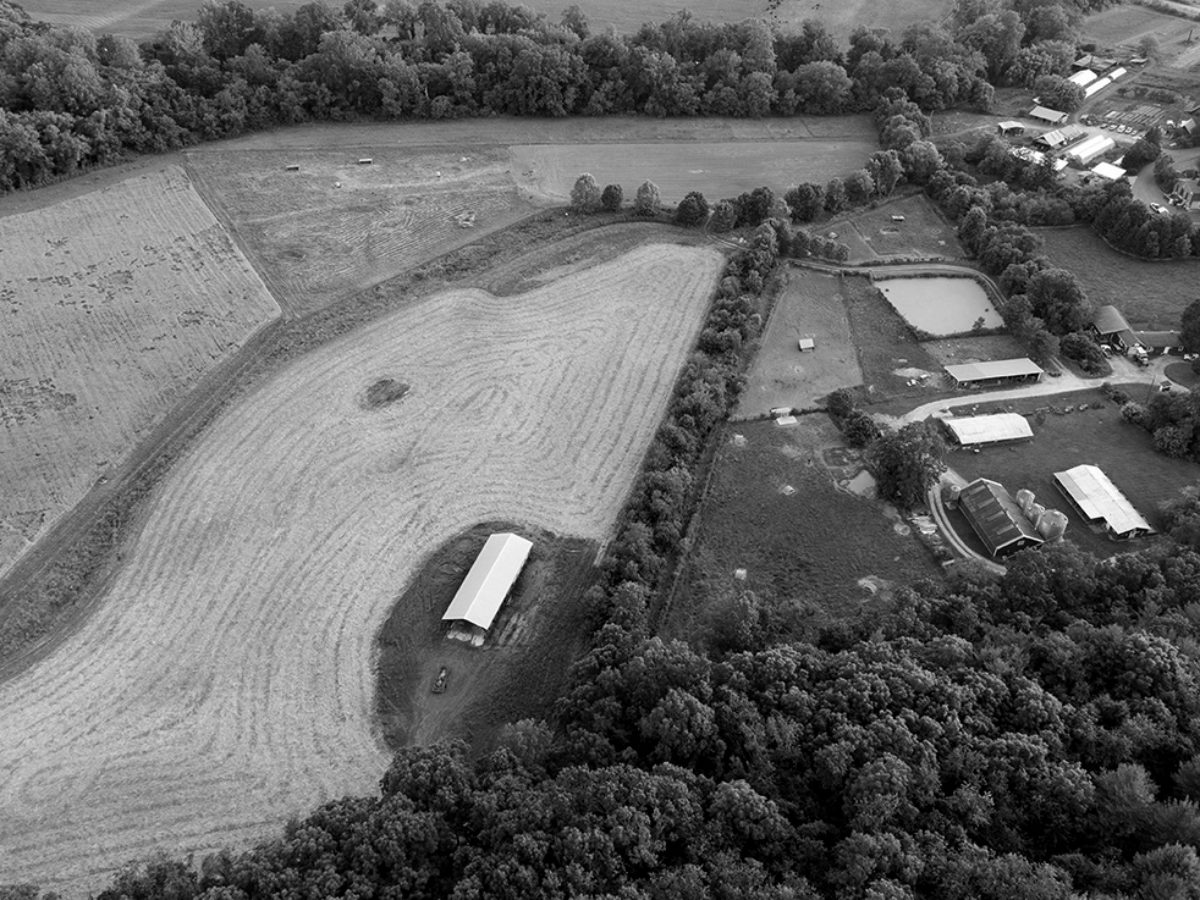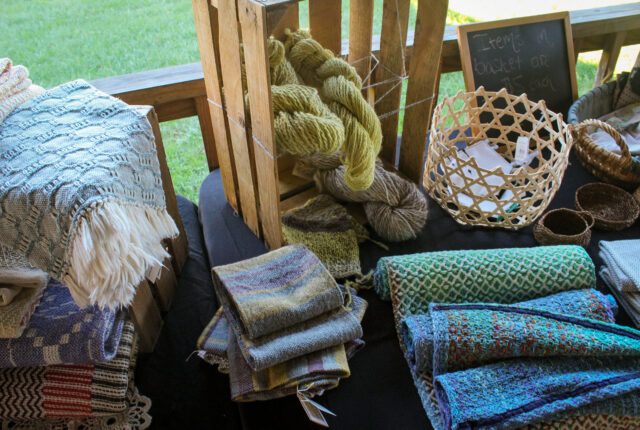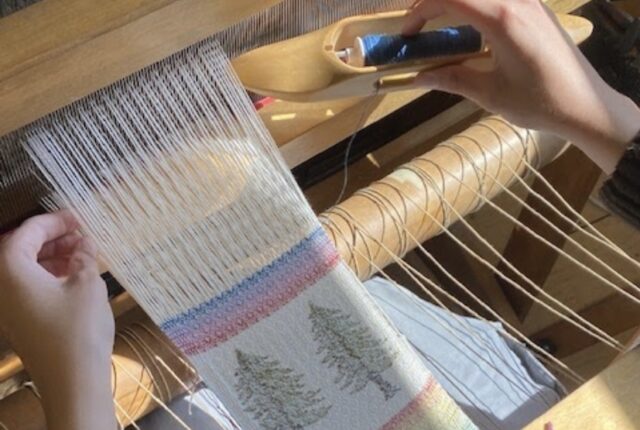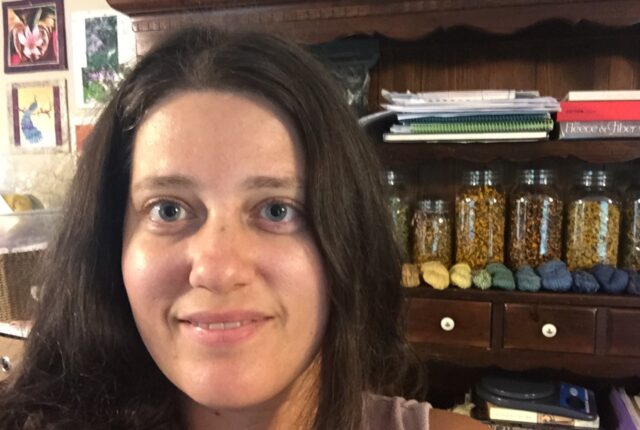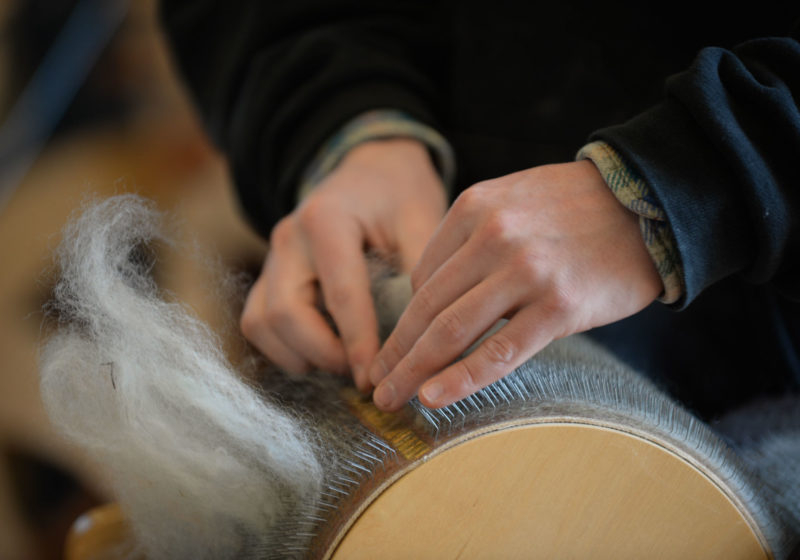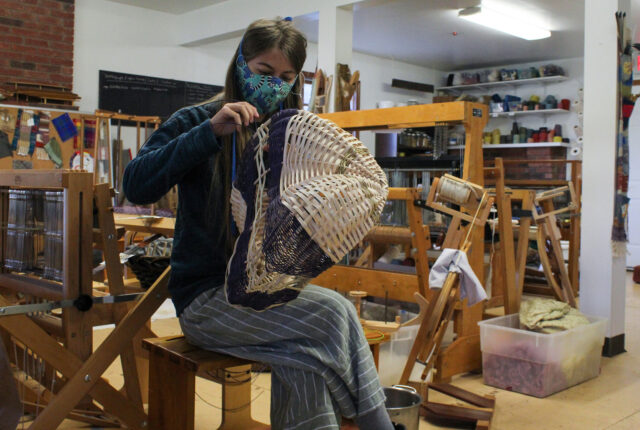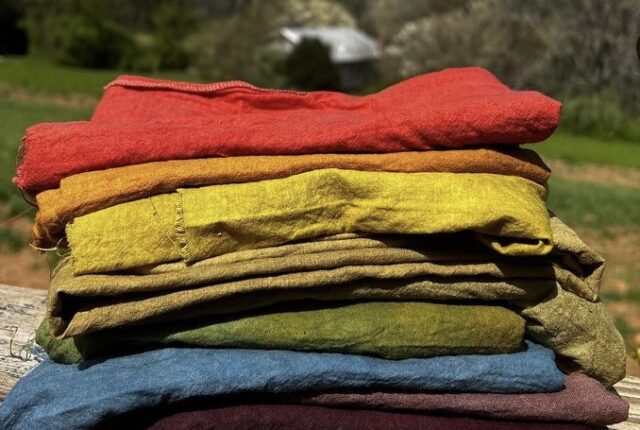Through organized production goals that focus on quality, design and sustainability, students develop an understanding of the material while making products that can be enjoyed by the community. There are opportunities on the Crew to learn other fiber skills such as spinning, felting, sewing, dyeing, and basketry. All of these learned skills can be applied to other areas of academic study as well as community engagement.
The Fiber Arts Crew uses wool from the sheep on the farm to spin their own yarn and cultivates a dye garden to dye the yarn. Additionally, Crew members learn about the intersection between art and work by selling their crafts. Read more about the dye garden.
The Fiber Arts Crew is also affiliated with the Craft Minor.
